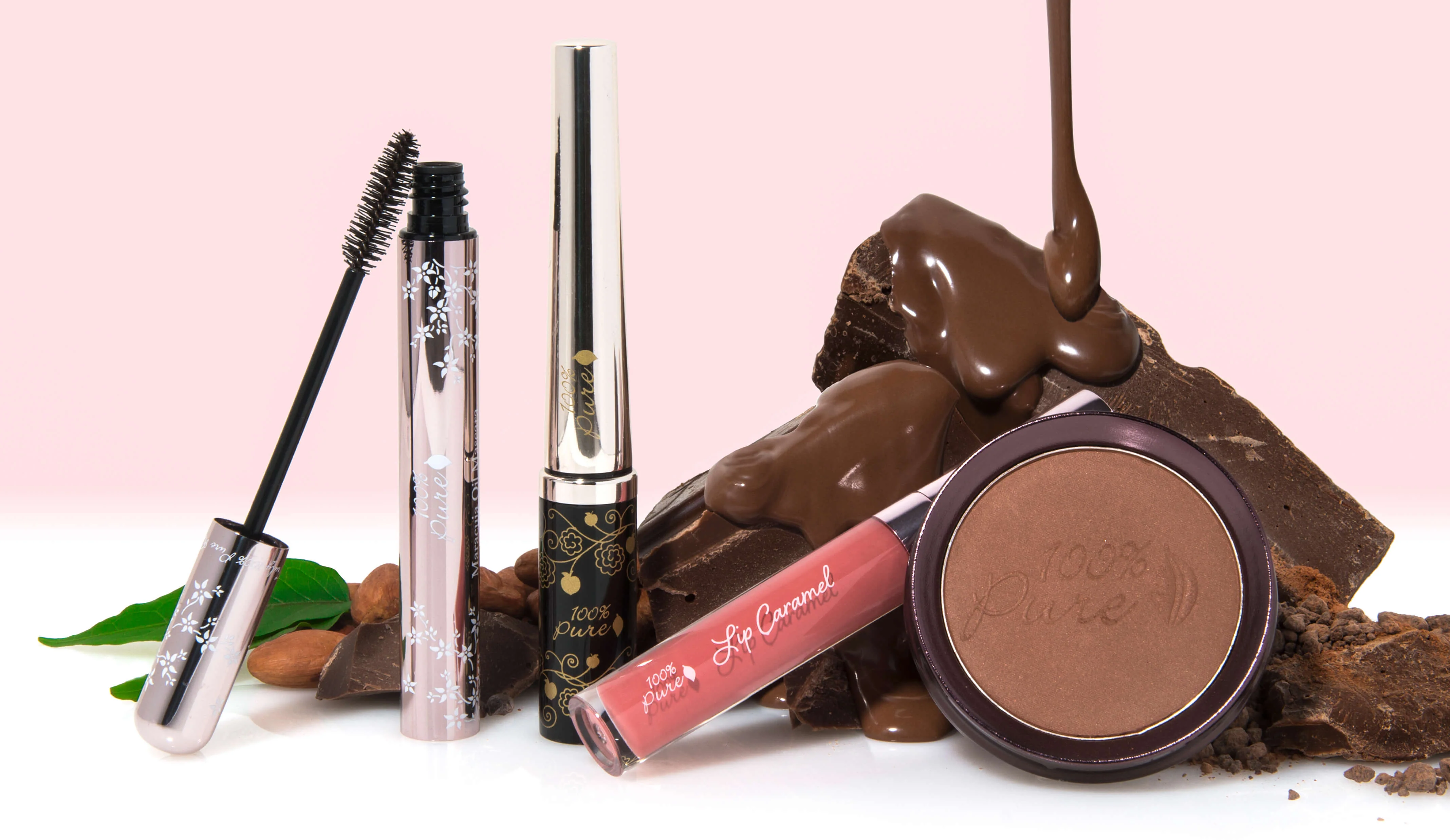Our Top Picks
Green Hive is reader-supported. When you purchase through links on our site, we may earn an affiliate commission. To understand our thorough approach to rating brands and products, explore our comprehensive methodology.
Our Top Picks
Green Hive is reader-supported. When you purchase through links on our site, we may earn an affiliate commission. To understand our thorough approach to rating brands and products, explore our comprehensive methodology.
Key takeaways
- Greenwashing is an unethical way for brands to present a deceptive image of environmental responsibility
- Greenwashing is pervasive, as it cuts across several industries.
- Consumers’ and investors’ interest in environmentally sustainable products sometimes makes brands greenwash.
Introduction
As consumers increasingly prioritize environmental responsibility, many companies are quick to adopt a green persona. They make several claims about their environmental impact, which are largely untrue. This phenomenon, termed "greenwashing," exposes the gap between appearance and reality. This article discusses prominent examples of greenwashing across industries, dissecting misleading tactics and their repercussions. Shedding light on these strategies empowers consumers to make informed choices and encourages greater corporate accountability, ultimately fostering a truly sustainable future.
Understanding greenwashing
The Cambridge English Dictionary defines greenwashing as “behaviour or activities that make people believe that a company is doing more to protect the environment than it really is.” Thus, greenwashing refers to the deceptive practice of conveying a false sense of environmental responsibility, often through misleading marketing and claims. This strategic maneuver aims to capitalize on the growing demand for eco-friendly products and practices while sidestepping the actual implementation of sustainable measures. As eco-conscious consumers ask for sustainable practices, so do investors look out for ESG compliance when investing.

At its core, greenwashing involves the presentation of a company or its products as more environmentally friendly than they truly are. This can manifest through various means, such as embellishing claims about product ingredients, recycling efforts, carbon emissions reductions, or overall commitment to sustainability. While some companies genuinely invest in eco-friendly initiatives, others exploit the public's desire for sustainability merely as a marketing tool. This not only misleads consumers but also undermines legitimate efforts to address pressing environmental challenges. So, how do you spot greenwashing? Here are some pointers:
Overemphasis on small environmental benefits
If a company heavily promotes a minor environmental aspect of its product, it might be diverting attention from more significant issues. This tactic, often referred to as "window dressing," involves highlighting a small positive attribute while downplaying or ignoring more substantial environmental concerns related to the product's lifecycle. For instance, a fast-food chain might proudly advertise its use of biodegradable packaging while neglecting to address the larger environmental impact of its supply chain, which could include deforestation for beef production or excessive water usage.
Exaggerated environmental claims
If a product's claims sound too good to be true, they might be. Unrealistic promises of dramatic environmental benefits without credible explanations are often a sign of greenwashing. These claims prey on consumers' hopes for quick and effortless solutions to complex environmental challenges. Whether it's a cleaning product claiming to completely eliminate all pollutants with a single use or a device promising miraculous energy savings without any change in behavior, such extravagant assertions should raise suspicion.
Comparative greenwashing
When a company compares its product to a more environmentally damaging alternative rather than addressing its own shortcomings, it might be attempting to distract from its own practices. This form of greenwashing, often termed "comparative greenwashing," involves highlighting a product's relative benefits in comparison to a worse option rather than addressing the product's own environmental impact. For instance, an automobile manufacturer might boast about its electric vehicle's lower emissions compared to a gas-guzzling SUV while conveniently overlooking other aspects, such as resource-intensive battery production or limited recycling options.
Unsubstantiated claims
Claims like "100% eco-friendly" or "zero impact" are rarely accurate. True sustainability involves a balance between social, economic, and environmental factors.
Lack of evidence or certifications

Legitimate eco-friendly products often have certifications from recognized organizations, such as USDA Organic, Climate Neutral, Energy Star, Certified B Corp or Fair Trade. If a product makes sustainability claims without any verifiable evidence, it might be a red flag.
Seven notable greenwashing examples
From IKEA to Keurig, there have been several notable examples of greenwashing that highlight the prevalence of this deceptive practice across various industries. These instances shed light on the lengths to which companies may go in order to appear environmentally conscious while sidestepping genuine sustainability efforts.
IKEA
Widely regarded as the world’s largest single consumer of wood, IKEA came under the spotlight for greenwashing in 2020. The Swedish company uses 1% of the world's wood every year. Earthsight dug into the affairs of IKEA in an 18-month investigation and found out that IKEA sells beech chairs made from wood illegally felled in the forests of the Ukrainian Carpathians, home to endangered lynx and bears.

As amazing as this sounds, it gets even worse as the wood used to make these chairs were certified by the Forest Stewardship Council (FSC). The FSC certification is the leading green certification for timber. But somehow, the council certified the wood. This puts a dent on the credibility of FSC as a global leader in timber certification.
Oatly
The United Kingdom Advertising Standards Authority came down hard on Oatly for making unsubstantiated claims in its adverts. The ads compared the carbon footprint of Oatly's milk with dairy milk. Following a series of complaints, the firm couldn’t provide enough evidence to back up many of its claims. This is a classic case of greenwashing where companies can’t walk the talk.

The on-screen text stated that "Oatly generates 73% less CO2e vs. milk, calculated from grower to grocer". However, ASA said the advert was misleading because Oatly based this claim on comparing only one of its products, the Oatly Barista Edition, with full cream milk. The ASA said viewers would understand the claim to include every single one of Oatly's products. Responding to the ban, Oatly’s spokesperson said they could have been more specific in the way they described some of the scientific data.
Keurig
In yet another astounding illustration of greenwashing, a majority of Canadian consumers were led to believe that Keurig's K-Cup pods were fully recyclable. However, the reality is far from straightforward, as while the pods themselves may indeed possess recyclable properties, they faced rejection across most Canadian provinces, except for Quebec and British Columbia.

Presenting a product as recyclable operates under a blanket system that doesn't inherently account for regional variations in recycling infrastructure and regulations. This disconnection between the claim and the practicality of recycling underscores a broader issue within greenwashing, where simplified environmental claims often fail to encompass the complexities of sustainable practices and their real-world implementation. Ultimately, a $3 million fine was imposed on Keurig by the Competition Bureau.
Innocent Drinks
Innocent Drinks was accused of greenwashing for pushing adverts that claim that buying their smoothies can help save the environment. Innocent Drinks is a subsidiary of Coca-Cola, and the beverage company is widely regarded as one of the worst plastic polluters globally.

In the advert entitled Little Drinks, Big Dreams, animated characters sang the lyrics: “We're messing up the planet. We're messing up real good”, against a backdrop of vehicles expelling pollutants, litter and dirty rivers. They subsequently sang: “Let’s get fixing up the planet. Fix it up real good…” with images of people recycling and squeezing fruit from a tree into Innocent smoothies.
An advocacy group known as Plastics Rebellion led a campaign against the advert, noting that the advertisement implies that buying single-use plastics is good for the environment. The United Kingdom’s Advertising Standards Authority (ASA) eventually banned the advert as it was deemed misleading. ASA acknowledged that while Innocent was working towards reducing the environmental impact of its products, it doesn’t necessarily mean their products have a net positive environmental impact over their full lifecycles.
HSBC
Next on the list is HSBC. Two of HSBC’s adverts were banned on the grounds of misleading advertising and unsubstantiated environmental claims. In the lead-up to the COP26 held in Glasgow in 2021, HSBC put up posters in bus stops that stated the company’s commitment to a sustainable future. One such poster reads, “HSBC is aiming to provide up to $1 trillion in financing and investment globally to help our clients transition to net zero.” Another one reads, “We’re helping to plant 2 million trees which will lock in 1.25 million tonnes of carbon over their lifetime.” Both of these posters were designed with green-leaning backdrops.

However, the Advertising Standards Authority ruled that readers would understand the ads to mean that HSBC was making a positive overall environmental contribution as a company, which is untrue. HSBC conveniently overlooked its continued financing of natural gas and oil production, which contribute to greenhouse gas emissions.
Windex
In 2019, Windex was called out for making misleading claims about its plastic packaging. They claimed that their bottles were made from 100% recycled ocean plastic, but in reality, the plastic came from recycled plastic that was never in the ocean. This is an example of greenwashing, which is when a company makes environmental claims that are not supported by evidence.

Windex's misleading claims about its plastic packaging were met with criticism from environmental groups and consumers. The company has since changed the content of its marketing campaigns to clarify that its bottles are made from ocean-bound plastic waste, which is plastic that is collected from landfills and other waste streams before it can reach the ocean. However, some environmental groups argue that even ocean-bound plastic is not a sustainable solution, as it still contributes to plastic pollution.
Volkswagen
Another famous example of greenwashing is the case of Volkswagen's "Clean Diesel" campaign. In the mid-2000s, Volkswagen marketed its diesel vehicles as environmentally friendly, claiming they had lower carbon dioxide emissions and better fuel efficiency. However, in 2015, it was revealed that Volkswagen had installed software in their vehicles that manipulated emissions tests, allowing the cars to pass regulatory standards while emitting much higher levels of pollutants in real-world driving conditions.

This scandal exposed the stark contrast between Volkswagen's green image and its actual environmental impact. The case highlighted the deceptive nature of some green marketing campaigns and the importance of independent verification and transparency in assessing a company's environmental claims.
FAQs
What is a famous example of greenwashing?
A famous example of greenwashing is Volkswagen's "Clean Diesel" campaign. Promoting their diesel vehicles as eco-friendly due to lower emissions and better fuel efficiency, the truth emerged when it was revealed that Volkswagen had rigged emissions tests through software, causing the cars to pass regulatory standards while emitting significantly higher pollutants on the road.
What are the 4 types of greenwashing?
The four types of greenwashing are hidden trade-offs, vague/false claims, irrelevant claims, and false certifications. The first involves instances where companies emphasize a single environmentally positive aspect of a product while neglecting to address broader environmental concerns associated with the same product. The tactic of making "Vague or False Claims," where companies use imprecise, unverifiable, or misleading language to make eco-friendly assertions that lack substantiated evidence.

Irrelevant claims are instances wherein companies highlight an environmentally positive attribute that, while accurate, doesn't have a significant impact on the overall environmental footprint of the product or company. Finally, companies showcase fabricated or self-generated eco-labels to create an impression of authenticity, even when those certifications lack legitimate third-party validation.
How many brands are greenwashing?
More than 50% of brands are guilty of greenwashing, according to a survey of 1,491 executives across different industries around the world. This concerning finding underscores the widespread nature of the issue, revealing that many companies are employing deceptive tactics to present themselves as environmentally responsible while failing to implement substantial sustainable practices.
What are the 7 sins of greenwashing?
The "Seven Sins of Greenwashing" framework, developed by TerraChoice (now UL Environment), outlines various deceptive tactics companies use to create a misleading impression of environmental responsibility. These sins are:
- The sin of hidden trade-off
- The sin of no proof
- The sin of vagueness
- The sin of worshiping false labels
- The sin of irrelevance
- The sin of lesser of two evils
- The sin of fibbing
Why is greenwashing illegal?
Greenwashing is illegal because it involves deceptive marketing practices that mislead consumers and violates laws against false advertising and misrepresentation. Although greenwashing is not inherently illegal in most jurisdictions, it can be considered deceptive or misleading advertising, which may be illegal under consumer protection laws in some countries.
What products are greenwashed?
A wide range of products can be greenwashed, spanning various industries. Common examples include household cleaning products, cosmetics, clothing, food items, electronics, and even automobiles. Greenwashing can occur in any sector where companies attempt to capitalize on the growing demand for environmentally friendly products by making misleading claims about their environmental impact or sustainability efforts.
Conclusions
As consumers increasingly seek genuine environmental commitment, recognizing and addressing greenwashing is crucial. Individuals can drive companies toward real sustainable practices by understanding the difference between authentic green initiatives and mere claims. This vigilance is essential to hold companies accountable, ensuring they take effective action to reduce their direct and indirect emissions and truly contribute to a healthier planet. Only through collective efforts, where brands adhere to their claims, and consumers become vigilant advocates, can we transcend the façade of greenwashing and pave the way for a truly sustainable future.
HOME - UN Climate Change Conference (COP26) at the SEC – Glasgow 2021. (n.d.). https://webarchive.nationalarchives.gov.uk/ukgwa/20230401054904/https://ukcop26.org/
BBC News. (2022, January 26). Oatly ads banned over “misleading” environmental claims. BBC News. https://www.bbc.com/news/business-60128075
Dickson, L. (2022, January 10). UVic law team triggers landmark decision over plastic coffee pods. Times Colonist. https://www.timescolonist.com/local-news/uvic-law-team-triggers-landmark-decision-over-plastic-coffee-pods-4936478
Fishburne, C. (n.d.). Little green lies: corporations wash over sustainability movements through greenwashing. Redwood Bark. https://redwoodbark.org/75428/opinion/little-green-lies-corporations-wash-over-sustainability-movements-through-greenwashing/
FLATPÅCKED FÖRESTS. (n.d.). https://www.earthsight.org.uk/flatpackedforests-en
FTC Charges Volkswagen Deceived Consumers with Its “Clean Diesel” Campaign. (2023, March 28). Federal Trade Commission. https://www.ftc.gov/news-events/news/press-releases/2016/03/ftc-charges-volkswagen-deceived-consumers-its-clean-diesel-campaign
Gallagher, T. (2022, November 18). Coca-Cola revealed as world’s worst plastic polluter for fifth year in a row. Euronews. https://www.euronews.com/green/2022/11/18/coca-cola-revealed-as-worlds-worst-plastic-polluter-for-fifth-year-in-a-row
Gonzalez, A. (2022, November 7). HSBC penalised over greenwashing. Leasing Life. https://www.leasinglife.com/comment/hsbc-penalised-over-greenwashing/
Gorman, R., & Gorman, B. R. (2013, July 6). IKEA uses a staggering 1% of the world’s wood every year. Mail Online. https://www.dailymail.co.uk/news/article-2357216/IKEA-uses-staggering-1-worlds-wood-year.html
greenwashing. (2023). https://dictionary.cambridge.org/dictionary/english/greenwashing
Gregory, A. (2022, February 23). Innocent Drinks accused of ‘greenwashing’ after watchdog bans ‘misleading’ climate advert. The Independent. https://www.independent.co.uk/climate-change/news/innocent-smoothies-greenwashing-advert-banned-b2020615.html
Peters, A. (2022). 68% of U.S. execs admit their companies are guilty of greenwashing. Fast Company. https://www.fastcompany.com/90740501/68-of-u-s-execs-admit-their-companies-are-guilty-of-greenwashing
Sins of Greenwashing | UL Solutions. (n.d.). UL Solutions. https://www.ul.com/insights/sins-greenwashing

.png)


.webp)




.png)
.png)



.svg)
